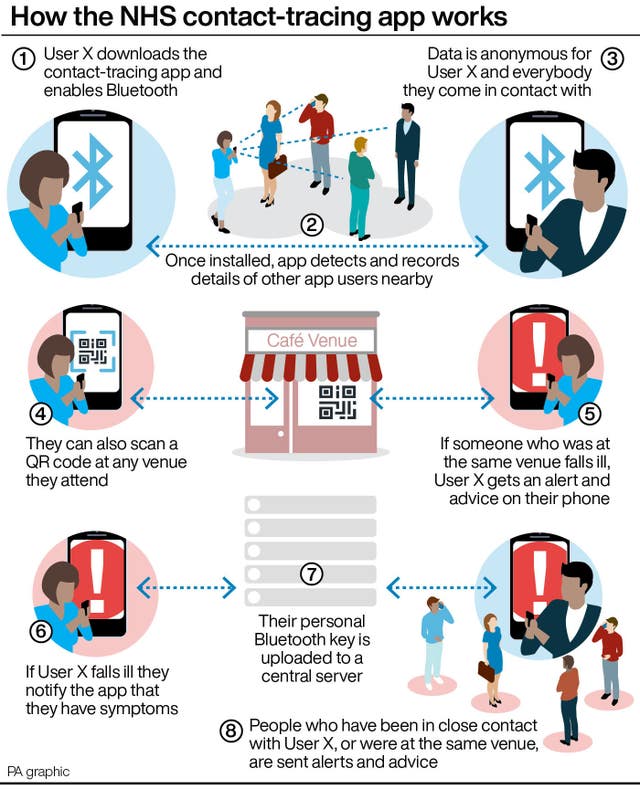
The NHS Covid-19 app will be needed for “quite a while” even with a vaccine, a developer behind the technology has said.
More than 1.7 million people across England and Wales have been asked to isolate via the app since it launched in September, having been downloaded 21.6 million times in total. Scotland and Northern Ireland have their own apps.
Research by The Alan Turing Institute and Oxford University – which is still subject to peer review – suggests that the app has so far prevented around 600,000 cases.
Wolfgang Emmerich, chief executive for Zuhlke Engineering, one of the firms responsible for supporting development and launch of the app, told PA that the tool has “proven to be quite an important public health instrument” but warned it will probably be a necessity for some time, particularly to protect those who choose not to vaccinate.
“I don’t want to break bad news but the app will be in use for quite a while,” Mr Emmerich said to PA.
“Even though the vaccines might reduce infectiousness, it won’t remove it completely so there will still be cases where people who’ve been vaccinated will pass on infections, and these cases need to be contained and the app is probably a very good mechanism, but not the only way, to contain them in a cost effective way.”
The technology is designed to keep an anonymous log of individuals that people come into close contact with using Bluetooth, as well as allowing users to check into venues by scanning a QR code when restaurants and other indoor public spaces are open.
Due to the privacy-preserving nature of the app, Test and Trace do not know who has been alerted to isolate by it, meaning there is a risk people could disobey warnings.
Mr Emmerich acknowledged that is a possibility but believes those pinged would at least take some caution.

“It’s probably fair to say people have ignored it from time to time, but even if they did they probably would have been more careful and not had granny over, that they otherwise might have,” he told PA.
Mr Emmerich said that research was underway comparing infection rates in areas where there is a high usage of the app, to similar areas that have a lower uptake of the app.
Early results suggest there is a “significant difference”, he explained.
“We do know that the app has had an effect.”
Zuhlke Engineering signed a £9 million contract with the Government in September to continue updating the app for six months.


Comments: Our rules
We want our comments to be a lively and valuable part of our community - a place where readers can debate and engage with the most important local issues. The ability to comment on our stories is a privilege, not a right, however, and that privilege may be withdrawn if it is abused or misused.
Please report any comments that break our rules.
Read the rules here